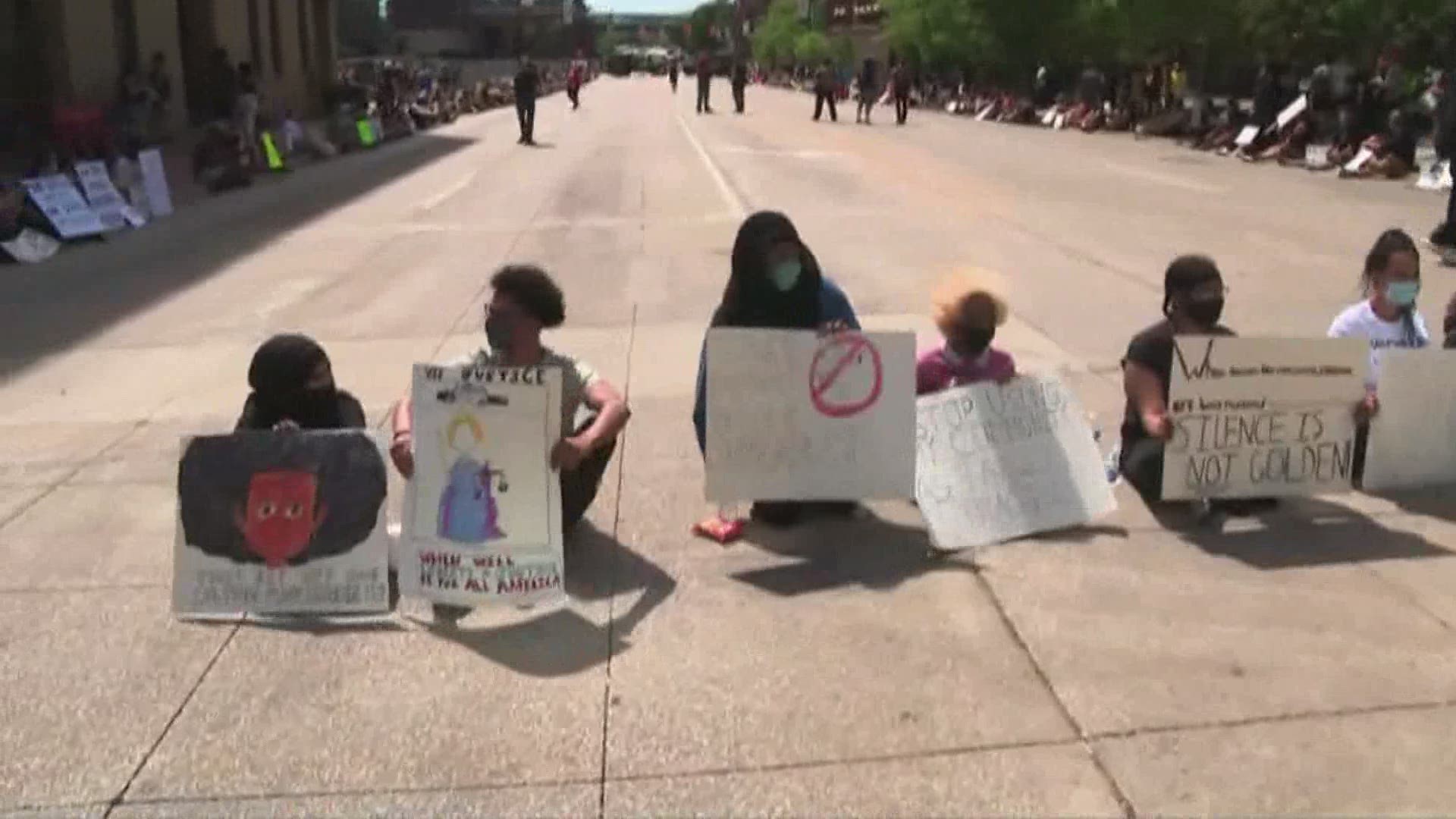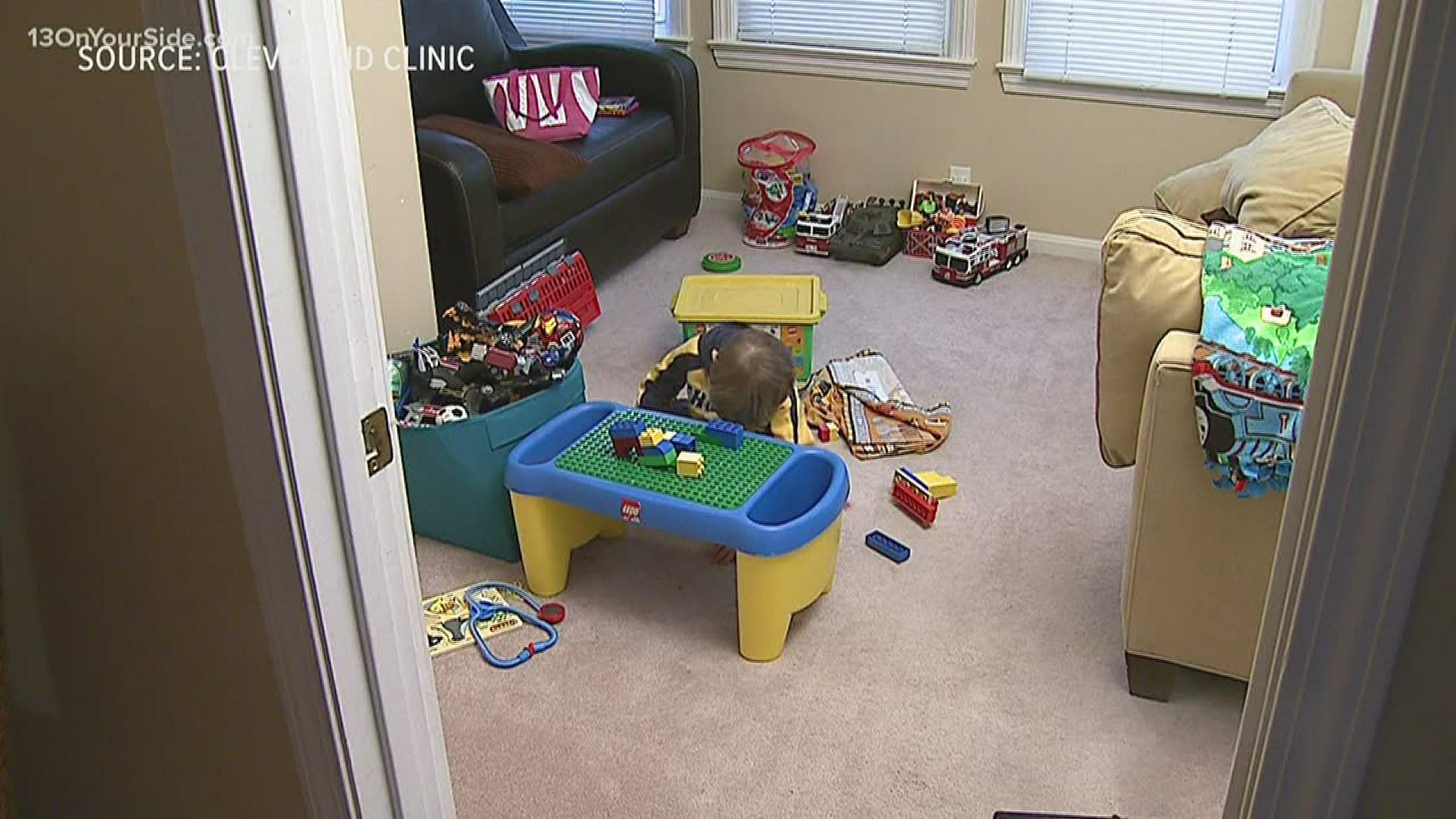GRAND RAPIDS, Mich. — Some parents may not know how to talk with their kids about the protests calling for justice for George Floyd and an end to police brutality.
13 ON YOUR SIDE spoke with Dr. Nicole Beurkens about how parents should approach this conversation with their children-being sure to teach them about the events that led up to the protests as well.
"This is not a time for parents to stay silent," said Dr. Beurkens. "This is a time for us to communicate with our children, in age appropriate ways, about the history of racism in this country, and about the changes that need to happen to achieve equality.
Children are aware that something big is happening right now. Not talking about it is not protecting them, it’s just leaving them to their own devices to try to make sense of it."
So how can we talk to kids about these things without scaring or overwhelming them? "It starts with us as parents being willing to face our anxiety about not knowing exactly what to say," said Dr. Beurkens. "We need to be honest with our children about what we do and don’t understand, and also about our willingness to learn. We need to manage our own emotions so we can calmly communicate with our children."
A good starting point is to ask kids what they know and what questions they have. It’s important to be honest and clear, and talk about the fact that these protests are happening because George Floyd, Ahmaud Arbery, and Breonna Taylor were killed for no reason other than the color of their skin. Talk about how this is wrong and that people want to make sure that this doesn’t keep happening.
Explain to them that the vast majority of people protesting are peaceful and are not harming anyone or damaging property. They are marching and speaking out peacefully to try to change things for the better. It’s also important to talk about how violence and damaging property are not appropriate ways for people to express their anger and hurt.
Avoid having children, especially younger children, view videos or news stories that are frightening and overwhelming. Older children have likely seen these things already so you can talk about that together."
So, what can parents do to help children learn important lessons from this?
- Allow your children to express whatever emotions they may have about all of this. It’s okay If your child seems uninterested or doesn’t have questions right now. Let them know that you are available to talk about it anytime they want to.
- Don’t be afraid to tell them if you don’t know how to answer their questions, but assure them you will work on finding the answers.
- Make sure your children know where you stand on racism. Beyond that, let them know what actions you are taking to support justice and equal rights.
- Help children focus on what they can do to stand up for what is fair and right. Whether it’s putting a sign in your yard, reading books together about racism and social justice, attending a march, or simply talking about these issues regularly – help them identify concrete steps you and they can take to be part of the solution.
For more insights like these from Dr. Beurkens, visit her website.
RELATED VIDEO:
MORE on 13 ON YOUR SIDE:
- Helping children social distance in the summertime
- Anxiety: It looks different for kids
- Developmental regression is possible during COVID-19 social distancing
- Nancy Pelosi to President Trump: Be a 'healer in chief'
- 'Can you pray for us too?' Woman said police officer asked her to pray for them at GR protest
►Make it easy to keep up to date with more stories like this. Download the 13 ON YOUR SIDE app now.
Have a news tip? Email news@13onyourside.com, visit our Facebook page or Twitter. Subscribe to our YouTube channel.


